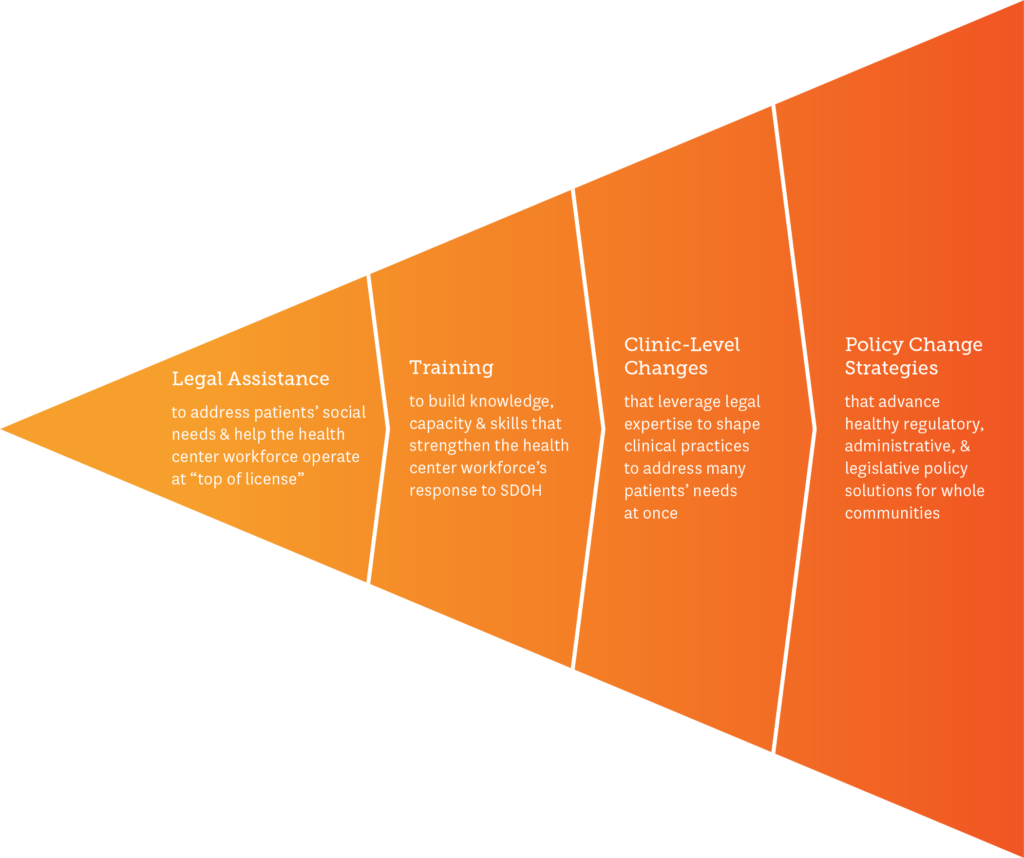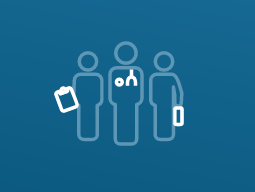Recognizing the enormous potential for legal services to help health care providers respond to the social needs and deficiencies they see every day in their clinics, the National Center for Medical-Legal Partnership works to create conditions in which all health organizations can leverage these services. Over the last decade, the National Center’s work has helped cultivate programs that do just that at 450 hospitals and health centers across the U.S.
Range of MLP Activities
At these medical-legal partnerships, lawyers become an important part of the health care workforce, embedding in various care settings just like any other specialist. When some of the most complex and intractable problems—like an illegal eviction—are detected, clinical staff can refer patients directly for legal services. And like other members of the health care team, legal staff are available to consult with clinical and non-clinical staff about system and policy barriers to care. A number of these partnerships go further, leveraging their considerable knowledge and expertise to advance local and state policies that lead to safer and healthier environments.

Increasing Support for Integrated, Patient-Centered Legal Services as Part of Care
- In 2014, the federal Health Resources and Services Administration (HRSA) designated legal services as an “enabling service,” meaning that health centers can use federal dollars to pay for on-site legal assistance for patients;
- The U.S. Department of Veterans Affairs encourages its VA Medical Centers to provide free space for community legal services agencies to provide care on-site;
- Over the last decade, the American Medical Association Board of Trustees, the American Academy of Pediatrics, and the American Bar Association have all released reports or resolutions calling on their members to engage in medical-legal partnership activities;
- The Association of American Medical Colleges conducted a three-year study of the impact of medical-legal partnerships on health equity and developed a suite of tools to evaluate medical-legal partnerships; and
- More than a dozen other national organizations are advancing the reach of medical-legal partnerships.
Anecdotal and other early evidence from programs and early federal investments demonstrate the impact legal expertise and services can have on individual patients, and hint at the potential for health care and legal professionals to join forces to promote population health. But making these collaborative services a normative part of today’s health care system requires an enormous cultural shift. That’s where we come in.
The National Center’s Work
As the leading voice for leveraging legal services inside health organizations, the National Center for Medical-Legal Partnership leads education, research, and technical assistance efforts to create conditions where all health organization in the United States can leverage legal services as a standard part of the way they respond to social needs. Read more about some of our recent initiatives.



